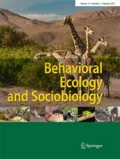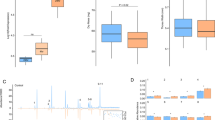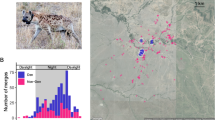Abstract
DNA fingerprinting was combined with field observations over four breeding seasons to investigate the social structure and mating system of the laughing kookaburra (Dacelo novaeguineae). Groups comprised a socially dominant pair and up to six helpers of either sex. Helpers were always recruited from young hatched in the group. Territorial inheritance, which is a feature of other cooperative breeders and an oft-cited benefit of philopatry, did not occur. Helpers only attained dominant status in an established group by dispersing into a vacant dominant position in that group. However, helpers could also form new groups by excising a new territory, often through a ”budding” process. The mating system was overwhelmingly monogamous. There were no cases of extra-group parentage in a sample of 140 nestlings; within groups of three or more birds, dominance predicted parentage almost perfectly (99.2% of 129 nestlings), irrespective of whether helpers in the group were related to one or both dominant birds. This is contrary to predictions from models of reproductive skew, possibly because they currently fail to incorporate the willingness of females to share reproduction among males.
Similar content being viewed by others
Author information
Authors and Affiliations
Additional information
Received: 15 May 1999 / Received in revised form: 2 November 1999 / Accepted: 6 November 1999
Rights and permissions
About this article
Cite this article
Legge, S., Cockburn, A. Social and mating system of cooperatively breeding laughing kookaburras (Dacelo novaeguineae). Behav Ecol Sociobiol 47, 220–229 (2000). https://doi.org/10.1007/s002650050659
Issue Date:
DOI: https://doi.org/10.1007/s002650050659




